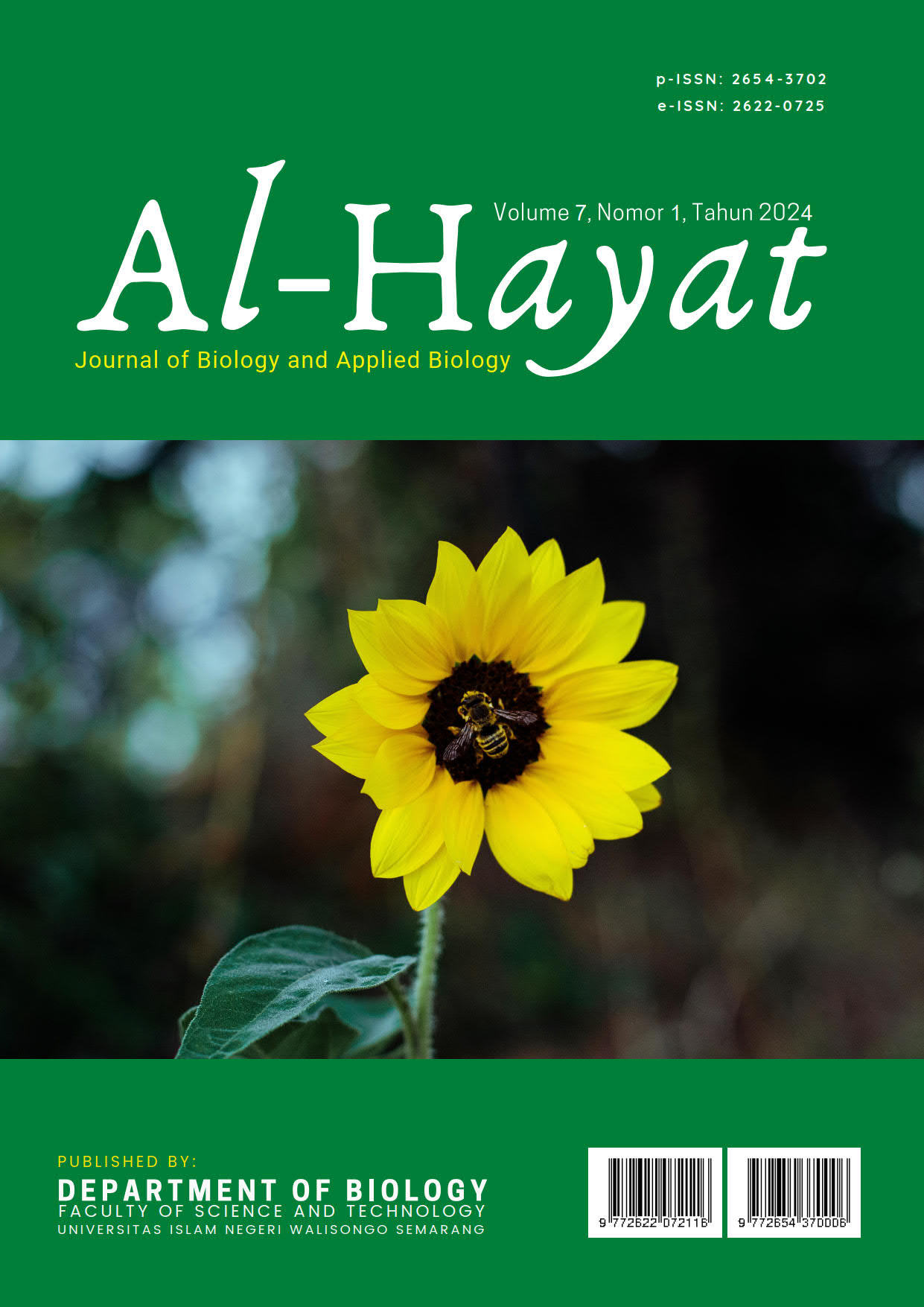Use of Medicinal Plants in Grogol Village Community as an Alternative Treatment for Illnesses
Main Article Content
Abstract
Medicinal plants have been an important part of cultural heritage and community knowledge for generations. This study aims to determine the use of medicinal plants in urban environments, especially in Grogol Selatan Urban Village, South Jakarta. This research uses a descriptive qualitative approach by collecting data based on field observations in accordance with the object of research, interviews, and documentation. The results showed that there are still many people in Grogol slot thailand Selatan Village who believe in traditional medicine and utilize various types of medicinal plants, such as Abrus precatorius, Clitoria ternatea, and Morinda citrifolia, to treat various diseases. The utilization of these medicinal plants is a motivating factor for the community to get used to the use of natural materials "back to nature". People's perceptions of the use of medicinal plants are inherited from previous generations and are based on their personal experiences and knowledge. Plants that are still utilized by urban communities in Grogol Selatan Urban Village, South Jakarta such as Abrus precatorius as a cough medicine, internal heat, and fever. Clitoria ternatea as a medicine for eye pain, eye wash, and diabetes. Morinda citrifolia as a medicine for gout, hypertension, cholesterol, heat reduction, rheumatism, hair loss, and flatulence in infants. The parts of medicinal plants that are utilized are leaves, fruits, and flowers. These plant parts are very easy to utilize by soaking, boiling, chewing, pounding, squeezing, kneading, and mashing.
Downloads
Article Details

This work is licensed under a Creative Commons Attribution-ShareAlike 4.0 International License.
The copyright of the received article shall be assigned to the journal as the publisher of the journal. The intended copyright includes the right to publish the article in various forms (including reprints). The journal maintains the publishing rights to the published articles. Authors are allowed to use their articles for any legal purposes deemed necessary without written permission from the journal with an acknowledgment of initial publication to this journal.
The work under license Creative Commons Attribution-ShareAlike 4.0 International License.
References
Adiyasa, M. R., & Meiyanti. 2021. Pemanfaatan Obat Tradisional di Indonesia: Distribusi dan Faktor Demografis yang Berpengaruh. Jurnal Biomedika Dan Kesehatan, 4(3), 130–138. https://doi.org/10.18051/jbiomedkes.2021.v4.130-138
Devionita, D., Syarif, M. I., Devi, F., & Atika, R. N. 2024. Kajian Etnomedisin Obat Asam Urat (Gout Arthritis) Menggunakan Rebusan Daun Salam dan Batang Serai di Desa Pangkalan Pisang sebagai Sumber Belajar Ipa. BIOCHEPHY: Journal of Science Education, 4(1), 237–238. https://doi.org/10.52562/biochephy.v4i1.1067
Diana Sari, I., Yuniar, Y., Siahaan, S., & Al, E. 2015. Tradisi Masyarakat dalam Penanaman dan Pemanfaatan Tumbuhan Obat Lekat di Pekarangan. Indonesian Pharmaceutical Journal, 5(2), 123–132. https://doi.org/https://doi.org/10.22435/jki.v5i2.3695
Elfariyanti, Maifera, Fauziah, & Hardiana. 2020. Gambaran Preferensi Masyarakat terhadap Obat Herbal dan Obat Kimia di Desa Paya Seumantok Aceh Jaya. Prosiding Seminar Nasional Multidisiplin Ilmu Universitas Asahan Ke-4, September, 1185–1195.
Hardianti. 2021. Pemanfaatan Tumbuhan sebagai Obat Tradisional oleh Masyarakat di Desa Sumillan Kecamatan Alla’ Kabupaten Enrekang.
Hidayah, Z. A., Shafirahaq, S. N., Widiastuti, S., Jalu, B., Lamiasih, Pawestri, E., Cahyo, J. N., & Sa’adah, M. 2022. Tumbuhan Etnomedisin di Kawasan Turgo. Leutika Prio. http://digilib.uin-suka.ac.id/id/eprint/63301
Husain, F., & Wahidah, B. F. 2018. Medicine from Nature: Identification of Medicinal Plants Used by Belian (Sasakese Indigenous Healer) in Traditional Medicine in Lombok, West Nusa Tenggara, Indonesia. AIP Conference Proceedings, 2019. https://doi.org/10.1063/1.5061896
Joanes J, Ahmad Soffian A, Goh X. Z., & Kadir S. 2014. Persepsi & Logik. http://www.utm.my/
Kristiyanto, J., Mamosey, W. E., & Damis, M. 2020. Budaya Pengobatan Etnomedisin di Desa Porelea Kecamatan Pipikoro Kabupaten Sigi Sulawesi Tengah. Jurnal Holistik, 13(1), 3–4.
Lau, S. H. A., Herman, & M, R. 2019. Studi Perbandingan Tingkat Pengetauan Masyarakat tentang Obat Herbal dan Obat Sintetik di Campagayya Kelurahan Panaikang Kota Makassar. Jurnal Farmasi Sandi Karsa, 5(1).
Lestaridewi, ni ketut, Jamhari, M., & Isnainar. 2017. Kajian Pemanfaatan Tanaman sebagai Obat Tradisional di Desa Tolai Kecamatan Torue Kabupaten Parigi Moutong. E-JIP BIOL, 5 (2)(2), 92–108.
M. Foster, G., & Gallatin Anderson, B. 2013. Medical Anthropology. Penerbit Universitas Indonesia (UI-Press).
Munaeni, W., Mainassy, M. C., Puspitasari, D., Susanti, L., Endriyatno, N. C., Yuniastuti, A., ... & Hendra, G. A. 2022. Perkembangan dan Manfaat Obat Herbal sebagai Fitoterapi. CV. Tohar Media.
Pradeiczuk, A., Eichemberg, M. T., & Kissmann, C. 2017. Urban ethnobotany: A case study in neighborhoods of different ages in Chapecó, Santa Catarina state. Acta Botanica Brasilica, 31(2), 276–285. https://doi.org/10.1590/0102-33062017abb0080
Purnomo, Y., & Tilaqza, A. 2022. Aktivitas Analgesik Infusa dan Dekokta Daun Palutan (Urena Lobata). Jurnal Wiyata: Penelitian Sains Dan Kesehatan, 9(1), 8. https://doi.org/10.56710/wiyata.v9i1.586
Rumanti, A. T., & Saragih, H. 2023. Ekstraksi dan Identifikasi Kandungan Senyawa Bioaktif Daun Saga Rambat (Abrus precatorius). Biota : Jurnal Ilmiah Ilmu-Ilmu Hayati, 8(2), 59–68. https://doi.org/10.24002/biota.v8i2.6417
Siahaan, N., Triskaprilia, D., Angga, M., Trisna, A., Larasati, D., Rahayu, S. E., & Siburian, J. 2022. Ethnobotanical Study of Medicinal Plants Used to Treat Human Diseases in The Urban Forest Area Of Sangga Buana Cilandak Jakarta Selatan. Journal of Tropical Biodiversity, 2(3), 117.
Syukur, S. B., & Asnawati, R. 2021. Faktor-Faktor yang Mempengaruhi dalam Pemanfaatan Herbal di Desa Pilohayanga Barat Kecamatan Telaga Kabupaten Gorontalo. Jurnal Zaitun Universitas Muhammadiyah Gorontalo, 1(1), 1–8.
Wahidah, B. F., & Husain, F. 2018. Etnobotani Tumbuhan Obat yang Dimanfaatkan Oleh Masyarakat Desa Samata Kecamatan Somba Opu Kabupaten Gowa Sulawesi Selatan. Life Science, 7(2), 56–59.
Widianto, E., Santoso, D. B., Kardiman, K., & Nugraha, A. E. 2019. Pemberdayaan Masyarakat tentang Pemanfaatan Tanaman Saga (Abrus Precatorius L) di Desa Tanahbaru Pakisjaya Karawang. Aksiologiya: Jurnal Pengabdian Kepada Masyarakat, 4(1), 63. https://doi.org/10.30651/aks.v4i1.2294

